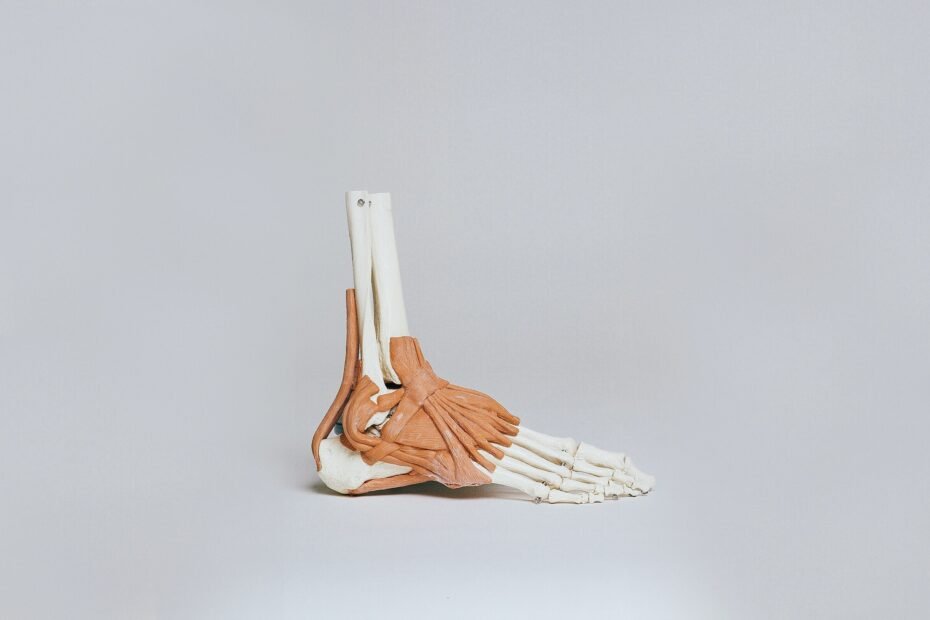Feet arch hurts can be a real pain – literally. The discomfort caused by this condition can range from mild to severe, and it can interfere with your daily activities. In this blog post, we will take a deep dive into the causes of feet arch hurts, identify common symptoms, and provide expert advice on how to alleviate the pain. We will discuss both home remedies and medical interventions to help you get back on your feet. Additionally, we will explore prevention strategies that can help reduce the likelihood of experiencing foot arch pain in the future. Whether you are an athlete or someone who spends long hours standing or walking, this post is for you. So let’s jump right in and learn how to take care of our feet!
Understanding the Causes of Feet Arch Hurts
Feet arch pain may be attributed to conditions such as plantar fasciitis or overpronation. Common causes of arch pain include overuse, direct injury, structural issues, and prolonged periods in unsupportive footwear. Understanding these factors is crucial in addressing foot pain and preventing severe cases. Plantar fasciitis, a common cause of arch pain, occurs due to irritation and inflammation of the ligament connecting the heel of the foot to the ball of the foot. Overpronation, a biomechanical condition, can lead to flatfoot and arch discomfort, emphasizing the need for appropriate support and care for the arch of your foot.
Role of Plantar Fasciitis in Feet Arch Hurts
The inflammation of the plantar fascia, known as plantar fasciitis, is a frequent culprit behind foot arch pain. This discomfort is often most pronounced in the morning or after extended periods of inactivity.
Impact of Overpronation on Feet Arch Pain
Overpronation, the inward rolling of the foot, can result in arch pain and foot issues. This condition may lead to flat feet, plantar fasciitis, and other foot problems, ultimately causing discomfort in the arch of your foot. In severe cases, overpronation can affect the normal arch structure, leading to foot pain and discomfort. Identifying and addressing overpronation is crucial in managing foot arch pain and preventing further complications. Understanding the impact of overpronation on foot health is essential for finding effective solutions to alleviate foot arch pain.

The Effect of Cavus Foot Condition on Arch Pain
Cavus foot, with its high arch, can result in discomfort and arch pain, impacting the ball of your foot, the heel, and the outer edge. This condition exerts additional pressure on these areas, contributing to foot arch pain. In severe cases, it can lead to ankle pain and foot discomfort. Understanding the impact of cavus foot on arch pain is crucial for identifying and addressing the underlying cause of foot pain.
Identifying Symptoms of Feet Arch Hurts
Swelling, stiffness, and discomfort in the arch of the foot are common symptoms of feet arch pain. In addition, experiencing pain in the arch of the foot, heel pain, and difficulty in walking may also indicate feet arch hurts. These signs could be indicative of a variety of underlying issues such as flatfoot, plantar fasciitis, or other neurological conditions. It is important to pay attention to these symptoms as they can help in identifying the root cause and seeking appropriate treatment.
When is it Time to Seek Medical Attention?
If your feet arch pain persists despite home remedies, it may be time to consult a healthcare professional. Seek medical attention if you experience severe pain, are unable to bear weight on your feet, or notice signs of infection. Remember, timely evaluation can help identify and address underlying issues.

Professional Diagnosis of Feet Arch Hurts
Podiatrists employ gait analysis and imaging tests to diagnose foot arch pain. A comprehensive medical history and neurological assessment aid in the professional diagnosis of arch pain. Physical examination and a detailed foot evaluation play crucial roles in identifying the underlying cause of foot arch pain. Utilizing techniques such as gait analysis and neurological assessments, podiatrists can pinpoint the root cause of the discomfort. The combination of these methods enables accurate diagnosis and tailored treatment plans for patients experiencing foot arch pain.
Home Remedies for Alleviating Feet Arch Hurts
Rest, ice, compression, and elevation (RICE) therapy is beneficial in reducing foot pain. Incorporating effective stretching techniques, calf muscle exercises, and using supportive shoe inserts can aid in relieving arch pain. Weight gain can exacerbate foot discomfort, so maintaining a healthy weight is essential. Severe cases of foot arch pain may indicate underlying conditions such as rheumatoid arthritis or neurological issues. Consult a healthcare professional if the pain persists despite home remedies, especially if there are signs of infection or inability to bear weight.
The Importance of Rest and Recovery
Adequate rest plays a crucial role in the treatment of foot arch pain, allowing the plantar fascia to heal effectively. By resting, avoiding high heels, and cushioning the feet, pressure and discomfort in the arch of the foot can be alleviated. This helps in promoting the recovery process and reducing foot pain significantly, ultimately contributing to improved overall foot health.
Effective Stretching Techniques for Feet Arch Hurts
To alleviate discomfort in the arch of your foot, effective stretching techniques can be incredibly beneficial. Stretching the calves, plantar fascia, and the bottom of the foot can help reduce foot pain and discomfort. Additionally, rolling the foot over a tennis ball, using orthotic inserts, and performing physical therapy exercises can aid in relieving arch pain caused by various underlying conditions such as flatfoot, arthritis, or rheumatoid arthritis. Incorporating these stretching techniques into your daily routine can contribute to the overall management of foot arch pain and support your recovery from severe cases.

Utilizing Over-the-Counter (OTC) Remedies
When experiencing foot pain, over-the-counter (OTC) remedies can offer relief. Ibuprofen is effective in reducing inflammation in the foot arch, while OTC arch support insoles alleviate discomfort. Consider incorporating physical therapy exercises like calf stretches to relieve arch pain. Additionally, orthotics can provide extra support and stability for the arch of your foot. Pharmacies offer a variety of options for OTC remedies, making it convenient to find the right solution for alleviating arch pain.
Choosing the Right Footwear to Alleviate Pain
When it comes to alleviating foot arch pain, selecting the right footwear is crucial. Stability shoes offer essential support for the arch, reducing discomfort and stiffness. Look for shoes with dedicated arch support to alleviate pain, inflammation, and stiffness in the arch. Avoid unsupportive footwear, as it can worsen the condition. Additionally, opt for shoes with extra cushioning to address pain caused by high arches or flat feet. It’s important to choose footwear that provides adequate support to the bottom of the foot, effectively relieving arch discomfort.
Prevention Strategies for Feet Arch Hurts
Prevention strategies for foot pain and discomfort involve targeted exercises to strengthen the calf muscles. In addition, avoiding unsupportive footwear and prolonged standing can alleviate arch pain. Managing weight gain is also crucial in reducing pressure on the arch of your foot to prevent pain. Incorporating stability shoes into your footwear rotation and regularly performing foot stretches can help prevent arch pain and conditions like plantar fasciitis. This proactive approach can significantly reduce the risk of developing foot arch pain and discomfort.
The Role of Arch Supports in Managing Feet Arch Hurts
Arch supports play a crucial role in providing long-term relief from foot pain, discomfort, and inflammation associated with the arch of your foot. They are especially effective in alleviating arch pain caused by structural issues or overpronation. By reducing pressure on the arch and providing essential support, arch supports help in preventing foot sprains and stiffness. Additionally, they are beneficial in managing arch pain related to conditions like plantar fasciitis, flat feet, or high arches.

How to Choose the Right Arch Supports?
Consider arch supports that offer additional heel support, providing relief from both arch discomfort and heel pain. Look for options that include extra cushioning in the ball of the foot to reduce arch pain. Opt for arch supports with forefoot support to alleviate stiffness and pain in the arch. Choose products with stability features to prevent overpronation and provide support to the arch. Arch supports with specialized insoles designed specifically for arch pain can target and alleviate discomfort effectively.
The Benefits of Using Arch Supports Regularly
Using arch supports regularly helps in preventing arch pain, stiffness, and discomfort. They aid in maintaining proper arch alignment, reducing the risk of foot problems. Regular use can alleviate arch pain, swelling, and inflammation while providing additional stability and reducing strain on the arch of the foot. These supports provide relief from arch pain and discomfort, making them essential for individuals with foot issues. Embracing arch supports can significantly improve overall foot health and prevent future complications.
Do Arch Supports Provide Long-term Relief from Feet Arch Hurts?
Arch supports offer lasting relief from feet arch pain, discomfort, and swelling. Regular use helps manage chronic pain and maintains proper alignment. By supporting the arch, they prevent foot problems in the long term, providing relief from pain, stiffness, and discomfort.

Conclusion
In conclusion, understanding the causes, symptoms, and prevention strategies for feet arch hurts is crucial for finding relief and maintaining foot health. Whether it’s plantar fasciitis, overpronation, or cavus foot condition, identifying the root cause of the pain is the first step towards finding an effective solution. Along with rest and recovery, incorporating stretching techniques and utilizing over-the-counter remedies can help alleviate discomfort. Choosing the right footwear and using arch supports regularly can also provide long-term relief and support. Remember, taking care of your feet arches is essential for overall foot health and preventing future pain. So, prioritize your foot health and take the necessary steps to alleviate feet arch hurts today.
I hope you found this blog helpful and please feel free to comment and share.
Check out some other useful blogs which include, orthotics for high arches and physical therapy for plantar fasciitis.
Thanks for reading!
 | Tracy J. Founder, The heel GP |
